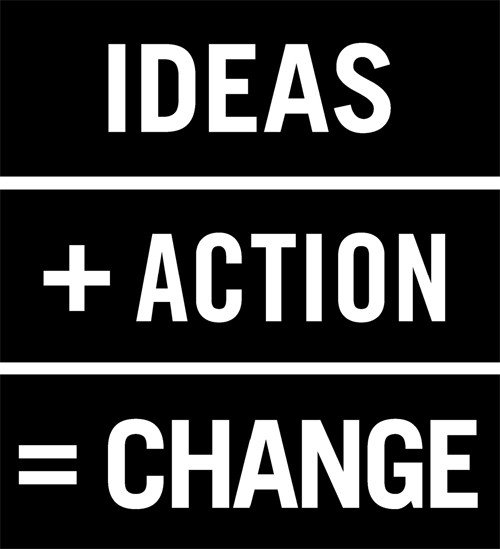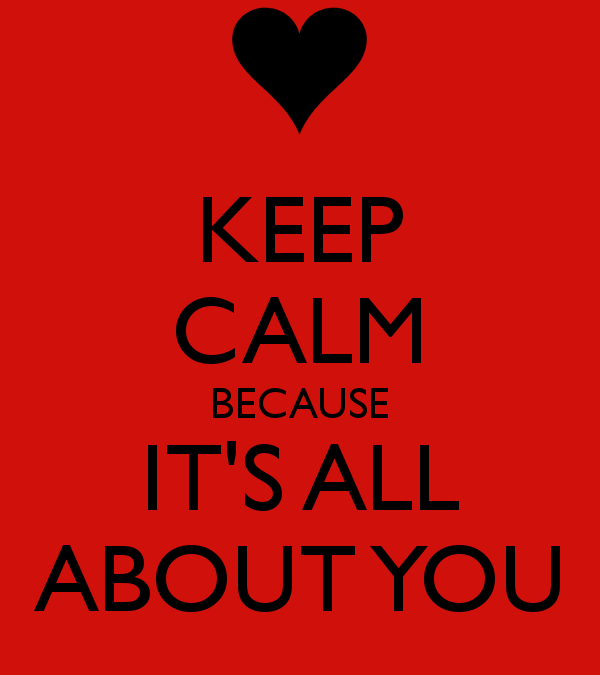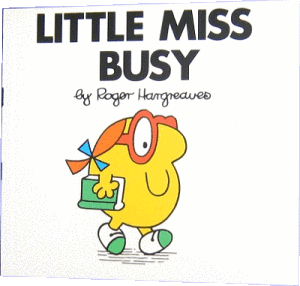
by Julia Felton | Sep 26, 2013
Step 6 in creating a Joined Up Business is resource effectively and to do this you need a Joined Up team. So many entrepreneurs I see are struggling to harness more clients and cash because they are the centre of the business as a result the business cannot grow. I have always said that success is a team sport as so if you want to up level your business you need to bring valuable team members. Yet time and time again I see people making poor decisions regarding the resources they need. So why is this? The reason is that often we like to hire (engage the services) of people like us but that is the death knell for a small business. People like us like the same tasks that we like so the result is that the other tasks (the ones we hate and procrastinate about) never get completed.
I m sure many of you are familiar with the wheel of life. You map all the areas of your life and aim to get everything in balance because only if the wheel is in balance can it turn effectively. On the way to the airport this morning I had a stark reminder of what happens when things get out of balance because I got a flat tyre. Being out of balance – with only three tyres – meant I could not go forward and so had to pull over onto the hard shoulder of the motorway. And the only way to efficiently and effectively get me moving again was to summon in support in the form of the Green Flag man. He came and changed my tyre for me so I could get going again. It was a really great analogy for me of how often the same thing happens in business. We forget to focus on an area until it goes wrong and then we either have to try and fix it ourselves or find support and team members to get this challenge resolved.
So how do we find the right people to work with us in our Joined Up Team ? How do we identify individuals that we can work with who can add real value to our business. Well the trick is not to hire people like us but rather the opposite because these people will love doing the tasks we hate. The tool I use to help me determine the right person to hire is Talent Dynamics. This short assessment helps people identify their natural strengths and so reveals the areas of business where they can add the most value because they are in flow. So what is flow? Flow is the state we are in when time flies by and we love what we are doing. Everything seems easy, yet time and time again I see business owners stepping out of flow because they seem to think that business should be hard. They fail to realise that they are delivering the most value when they are doing what they love and things are easy.
Within Talent Dynamics there are 8 different archetypes and you can read all about them here. Each archetype has different strengths and activities that they are best suited to work on in a business. Maybe you have high dynamo energy like the creators – they have their head in the clouds and are great at strategy and creating new ideas but lousy at follow up and detail. Contrast this with the traders (tempo energy people) who love detail and have their ear to the ground. They love to know what is going on and are great at detail. Give them customer facing roles where they can nurture the clients and they will flourish.
Then there are blaze energy people who just love connecting with others. It’s all about the people for them so they are great at networking, deal making and raising the visibility of your business. In contrast steel energy people are all about the task and analytical detail. The process is more important for them than the people so these people relish roles like accountancy and finance that are meticulously detailed. It’s important to note that we all have our unique energy blueprint and can all “do” all the energies but you will be more efficient, productive and therefore happy if you focus on the activities that you have the greatest affinity and propensity to excel at.
Once you understand where your strength and talents lie it is easy then to hire people with complementary skills. In doing so you create a Joined Up Team that is balanced and gets all the tasks of he business accomplished. You can take your talent dynamics test here and if you need any help in creating your Joined Up Team just let me know and we can schedule a Joined Up Business Strategy Session to jump start your business to the next level.
Julia Felton (aka The Business Wrangler) is the founder of Business HorsePower. Business leaders, entrepreneurs and executives hire her to accelerate their business performance by harnessing the energy of their people to work more collaboratively together. By aligning purpose with actions the team achieves exponential results as everyone starts pulling in the same direction.
Julia believes that business is a force for good and through designing purpose-driven businesses that leverage the laws of nature, and the herd, you can create businesses founded on the principles of connection, collaboration and community that make a significant impact in the world.

by Julia Felton | Sep 17, 2013
With our constant stream of emails, voicemails, meetings, conference calls, pages, faxes and so on, it is a minor miracle that any of us can accomplish anything. With our Blackberrys surgically implanted into our hands, our time is sliced so thinly that we never have the focused time to develop the big-picture perspective required for an action plan, let alone the time to execute it.
“Daily routines, superficial behaviours, poorly prioritized or unfocused tasks leech managers’ capacities—making unproductive busyness perhaps the most critical behavioural problem” in business today, contend Heike Bruch and Sumantra Ghoshal in their book A Bias for Action.
For so many of us—whether CEOs for major corporations, small business owners or solo-entrepreneurs—there is a fundamental disconnection between knowing what should be done and actually doing it. Calling this disconnection the “knowing-doing gap,” Stanford University researchers Jeffrey Pfeffer and Robert Sutton pose the question: “Why does knowledge of what needs to be done frequently fail to result in action or behavior consistent with that knowledge?”
Is there anyone in business today who hasn’t wondered the same thing?
The answer, argue Bruch and Ghoshal, is both simple and profound. They sum it up with the term “willpower.” The problem they say is not that managers’ time is sliced, but that their intention or “volition” is sliced as well.
Getting things done requires two critical components: energy and focus. And both are at risk in the modern workplace. Building a bias for action in yourself and your organization requires developing and reinforcing the skills to become a “purposeful” or “volitional” manager. These are people who can consistently achieve their objectives by making an unconditional commitment to their goals and then leveraging the power of that intention to overcome the obstacles in their way, whether their own doubts or the bureaucracies within their organizations.
“Purposeful action-taking depends on engaging the power of the will,” according to Burch and Ghoshal. “Not only does willpower galvanize your mental and emotional energy, it also enables you to make your intention happen against the most powerful odds: distractions, temptations to move in a different direction, self-doubt, and negativity. Willpower is the force that strengthens your energy and sharpens your focus throughout the action-taking process.”
Burch and Ghoshal identify four key steps that form the basis of successfully taking action:
Form your intention. To work, your goal must appeal to you emotionally and be something you can define concretely enough so you can clearly visualize its success.
Commit unconditionally to your intention. This is the key step, which the authors liken to “crossing the Rubicon,” Caesar’s irreversible decision that led to his conquest of Rome.
Protect your intention. Once you have made your commitment, you have to protect it from forces both within yourself and your organization.
Disengage from your intention. Unlike Caesar, your Rubicons aren’t life-and-death affairs. You have to define your “stopping rules,” the point of success—or failure—from which you walk away and take up the next challenge.
From the commitment comes both the emotional energy and the focus that are critical to your success. In short, the process of getting things done in business is pretty much the same as in any other aspect of life: The only things that get done are those that you genuinely believe in, and believe will get done.
Julia Felton (aka The Business Wrangler) is the founder of Business HorsePower. Business leaders, entrepreneurs and executives hire her to accelerate their business performance by harnessing the energy of their people to work more collaboratively together. By aligning purpose with actions the team achieves exponential results as everyone starts pulling in the same direction.
Julia believes that business is a force for good and through designing purpose-driven businesses that leverage the laws of nature, and the herd, you can create businesses founded on the principles of connection, collaboration and community that make a significant impact in the world.

by Julia Felton | Sep 11, 2013
Resource Effectively is the 6th step of CANTER which is my proven system for creating a Joined Up business. To me resourcing effectively means two things – working with the right team members and having in place proven systems that save yourself time time, energy and money.
Most of us run our lives on a handful of systems. Between our cellphones, our planners and our e-mail inboxes, we have organized ourselves and our time. And if you ever doubt the importance of these systems, recall your panic the last time you lost your planner.
Yet as important as these systems are, most of us don’t take advantage of what systems can do to improve our businesses. Systems are simply ways of automating or structuring processes so that they can occur systematically without so much thought or attention—and by more than just one person, so that the business can continue to run if the owner takes a vacation.
Figuring Out What to Systematize
For most of us, there are dozens of similar repetitive tasks, large and small, in our businesses or jobs that could be systematized. To identify where you can apply systems, step back from your enterprise and try to look at it objectively. Ask yourself questions such as below:
Where are your frustrations? This is an important test for two reasons. First, you are more likely to be frustrated if you are redoing tasks that bring no particular satisfaction. Second, you are going to be frustrated if you have to relearn a task or “recreate the wheel” every time a specific need comes up.
What is holding back your business? What are the choke points? Do you need to generate more prospects? Do you have prospects but a low rate of conversion? Do you convert customers but lose them through poor follow-through? Strategically focusing on your business this way is more likely to spot high-value opportunities for systemization.
What causes you stress? Is it preparing for the quarterly performance reviews? Finalizing your printed catalog? Preparing for your annual make-or-break tradeshow? Even if you know the steps by heart, systematizing at least part of these stress-inducing activities could yield big benefits to your business—and your well-being.
Start by Writing It Down
The first step in systematizing a process is to write it down. What exactly is the process you go through to handle a sales lead? Place a want ad for your shipping clerk? Train a new receptionist? If you are struggling to get all the steps down, try the “backwards” approach. Start with the end result and then determine what you did right before that, and so on, for each step.
Another valuable exercise is to document what everyone in your organization does. Forget job descriptions: You want to know what they actually do. This may highlight high-value opportunities to build systems that can be leveraged throughout the organization.
Often, the documentation you create in this process is all the system you require. The next time the task comes up, you can pull out the file and save the relearning. It also becomes the core of the training manual for new employees, which is often one of the most valuable systems you can build.
Do the Cost-Benefit Math
Here are some guidelines for figuring out which of the myriad choices are worth the effort of creating a system:
What are the odds you will be doing this again? How often?
How hard is it to automate? Creating paper checklists is easy; programming Outlook to sync your phone contacts and automatically generate follow up emails isn’t so easy. However, don’t give up if the software approach is too expensive or complicated. Productivity guru David Allen sells several slick software products, but his core recommendation for organizing tasks is to create a set of clearly labeled file folders. Again, a well-documented, step-by-step manual is the core of many highly successful systems.
How painful is the task? And how painful is failing to execute it well? High-value tasks, such as annual trade-shows and the like, are good candidates for setting up systems in order to reduce risks and the associated stress.
Can you hire it out? In some cases, the best system is to hand the documentation for the process to a junior employee. In particular, those stress-inducing tasks noted above can be partially off-loaded. But you will need to do the work up front of carefully recording the steps involved, and how to achieve and measure the necessary outcomes.
Get Out of the Box
As you go through this analysis, don’t be afraid to start with the question: Why do we do this process in the first place? For every process you find that could be automated with a new system, you may find another that can be eliminated altogether. Systematically reviewing your business this way may be the most valuable system of all.
Systems dramatically increase your productivity and if you want to improve your productivity and achieve more in the last 90 days of this year than you have in the previous 9 months, then I urge you to look out for my new online training that will be starting soon.
Julia Felton (aka The Business Wrangler) is the founder of Business HorsePower. Business leaders, entrepreneurs and executives hire her to accelerate their business performance by harnessing the energy of their people to work more collaboratively together. By aligning purpose with actions the team achieves exponential results as everyone starts pulling in the same direction.
Julia believes that business is a force for good and through designing purpose-driven businesses that leverage the laws of nature, and the herd, you can create businesses founded on the principles of connection, collaboration and community that make a significant impact in the world.

by Julia Felton | Aug 27, 2013
Here’s a quick, three-part quiz about one of the major issues most individuals grapple with these days.
a) List the most frequent points of contention that recur in relationship after relationship.
b) Name the biggest fear women have about their future.
c) Guess the secret we hold dearest, beyond even our most intimate relations.
If you said: a) communications, sex and MONEY; b) losing control of their physical or mental facilities or being on the street because they don’t have any MONEY; and, c) the amount of MONEY we owe; you’re absolutely right.
According to a recent survey conducted by the American Psychological Association, concern about money is the prime source of stress for 73 percent of Americans. Everybody, it seems, has money issues, but, sadly, hardly anybody really talks about it. Money is our secret, both in private and in public. Sometimes we don’t even admit our worries to ourselves.
Like most secret fears, anxieties about money spread like the common cold until they’ve infected our attitude and behavior and smothered any sense of well-being. And, because we don’t talk about them or admit them, we are held back from doing anything about them.
Once the fear is given voice, however, some of its power is taken away and we can begin to take action.
Suze Orman, author of The 9 Steps to Financial Freedom, believes that the sooner we deal with our fears, the more money we will be able to create. “When you heal your heart, you help your pocketbook,” she says.
Often it is the early messages we received about money that influence our current beliefs. That relentless, looping tape recorder in our minds picks up and continues to play old ideas that are sometimes so subtle we don’t even realize their presence.
So, one of the first steps in dealing with current money issues is to explore early beliefs that still have a grip on our attitudes and choices. Make notes about these old messages. Write a “money biography”—the history of your relationship with money from childhood to present. Also list your fears about money—no matter how ridiculous or far-fetched they might sound.
Our unspoken attitudes and ideas about money issues may be getting in the way of a sense of well-being and security in our lives. In fact, we may not even know they exist. And, like finding our way through a darkened room when things are going bump in the night, it always helps to turn on the lights
During the Master Your Money Mindset workshop I will helping you develop an awesome relationship with money so that you can have empowering conversations and address any money demons head on.
Julia Felton (aka The Business Wrangler) is the founder of Business HorsePower. Business leaders, entrepreneurs and executives hire her to accelerate their business performance by harnessing the energy of their people to work more collaboratively together. By aligning purpose with actions the team achieves exponential results as everyone starts pulling in the same direction.
Julia believes that business is a force for good and through designing purpose-driven businesses that leverage the laws of nature, and the herd, you can create businesses founded on the principles of connection, collaboration and community that make a significant impact in the world.

by Julia Felton | Aug 15, 2013
The term Bodacious comes from a blend of the words bold and audicious and to me is such a great word to describe boundaries. So what is a boundary and why do we need bodacious boundaries in business?
Well a boundary defines a limit. Something that we will permit or not into our lives. A personal boundary defines who you are as an individual and therefore the types of opportunities that you allow into your life. There are a lot of different aspects of ourselves regarding boundaries and these include:
- physical boundaries
- mental boundaries
- psychological boundaries
- spiritual boundaries
How we set boundaries and how consistent we are with them can be a defining point in how successful we are in our lives and our businesses. Sometimes setting boundaries involves you being courageous, particularly if it is with someone you have had poor boundaries with in the past. However, the defining thing about boundaries is that they bring clarity. Everyone knows the rules of the game and armed with this knowledge everyone feels safer.
It’s ironic to me that setting boundaries actually increases our security and safety and yet so many of us fail to set boundaries because we think that people won’t like us. In fact the opposite is true, people with bodacious boundaries have massive respect from others whilst people with poor boundaries can be walked over by others. I should know I’ve experienced this many times in the past!.
In my business I have found it is essential to implement bodacious boundaries so that I always have clarity and focus about what I am doing when. Time is our most precious resource and yet as business owners we can easily succumb to the thief of time and get distracted with non-incoming producing activities. I’ve found that by putting in bodacious boundaries I have become more productive and effective.
Here are my 15 top ways to help you instill bodacious boundaries in your business. Implement just a few of these and what your business soar to success:
- Turn off email notifications
- Turn off the ringer on your mobile phone
- Don’t answer email throughout the day, instead batch it and answer just twice daily
- Don’t get distracted with social media. Select a certain time each day to engage and then switch off
- Set a timer and work in 60-90 minute increments
- Never skip 30 minutes a day of daily marketing, no matter what
- Pre-schedule this 30 minute daily marketing activity in your calendar for the next month (aim for the same time each day)
- Know in advance what you are going to focus on – it avoids procrastination – a serious time waster
- Don’t multi-task
- Focus on completion, not perfection
- Put a physical and energetic “do not disturb” sign up during your marketing time
- Do the tasks you fear the most, first
- For 30 minutes each day, treat your business as the most important thing in your life
- Set shockingly short time frames for each task – it focuses the mind
- Remember it is only 30 minutes.
Look at this list and identify three bodacious boundaries you are going to set today. Share them on the facebook page and let us help keep you accountable to doing them.
During the Master Your Money Mindset workshop I will be sharing with you my top tips, strategies and techniques to help you create Bodacious Boundaries with money. Registerhere to join us.
Julia Felton (aka The Business Wrangler) is the founder of Business HorsePower. Business leaders, entrepreneurs and executives hire her to accelerate their business performance by harnessing the energy of their people to work more collaboratively together. By aligning purpose with actions the team achieves exponential results as everyone starts pulling in the same direction.
Julia believes that business is a force for good and through designing purpose-driven businesses that leverage the laws of nature, and the herd, you can create businesses founded on the principles of connection, collaboration and community that make a significant impact in the world.

by Julia Felton | Aug 6, 2013
So what habits do the rich do every day that the poor don’t?
Tom Corley, on his website RichHabits.net, outlines a few of the differences between the habits of the rich and the poor:
- 70% of wealthy eat less than 300 junk food calories per day. 97% of poor people eat more than 300 junk food calories per day. 23% of wealthy gamble. 52% of poor people gamble.
- 80% of wealthy are focused on accomplishing some single goal. Only 12% of the poor do this.
- 76% of wealthy exercise aerobically 4 days a week. 23% of poor do this.
- 63% of wealthy listen to audio books during commute to work vs. 5% for poor people.
- 81% of wealthy maintain a to-do list vs. 19% for poor.
- 63% of wealthy parents make their children read 2 or more non-fiction books a month vs. 3% for poor.
- 70% of wealthy parents make their children volunteer 10 hours or more a month vs. 3% for poor.
- 80% of wealthy make hbd calls vs. 11% of poor
- 67% of wealthy write down their goals vs. 17% for poor
- 88% of wealthy read 30 minutes or more each day for education or career reasons vs 2% for poor.
- 6% of wealthy say what’s on their mind vs. 69% for poor.
- 79% of wealthy network 5 hours or more each month vs. 16% for poor.
- 67% of wealthy watch 1 hour or less of TV. every day vs. 23% for poor
- 6% of wealthy watch reality TV vs. 78% for poor.
- 44% of wealthy wake up 3 hours before work starts vs.3% for poor.
- 74% of wealthy teach good daily success habits to their children vs. 1% for poor.
- 84% of wealthy believe good habits create opportunity luck vs. 4% for poor.
- 76% of wealthy believe bad habits create detrimental luck vs. 9% for poor.
- 86% of wealthy believe in life-long educational self-improvement vs. 5% for poor.
- 86% of wealthy love to read vs. 26% for poor
Which ones resonated for you? I’m off to 3 empty my kitchen of junk and to start working out. Not looking forward to that!!.
Julia Felton (aka The Business Wrangler) is the founder of Business HorsePower. Business leaders, entrepreneurs and executives hire her to accelerate their business performance by harnessing the energy of their people to work more collaboratively together. By aligning purpose with actions the team achieves exponential results as everyone starts pulling in the same direction.
Julia believes that business is a force for good and through designing purpose-driven businesses that leverage the laws of nature, and the herd, you can create businesses founded on the principles of connection, collaboration and community that make a significant impact in the world.

by Julia Felton | Jul 30, 2013
Money—the lack of it, the fear of losing it, the dread of not having enough—tops the list of concerns of many people these days. That’s because the economy is in bad shape, you may say. But didn’t those fears predate today’s bad news? And even when the economy is flourishing, we are still a debt-ridden nation.
What’s going on?
Our ability to create sufficient money in our lives is anchored by our financial attitudes, beliefs, and behaviours—what you believe can be true for your life. When these beliefs and values remain unexamined, they can get in the way of a sense of wellbeing and security. Here are a few of the more common attitudes that get in people’s way:
I Don’t Like Money; I Don’t Care about Money
This attitude is held by people at all income levels. It can have its origin in religious beliefs, political beliefs or guilt at inherited privilege. Pam is a child of the 60’s who says she doesn’t really like money. She never allows herself to have what she truly wants and always buys the cheapest version. She’s a landscape designer, but regularly under-bills her clients. A classic under-earner, she sometimes relies on credit cards for basic expenses such as rent.
I’m Clueless about Money
Doug rarely balances his bank statements, doesn’t know how much money he has or spends and, as a result, finds himself saddled with late fees and bounced check charges. People like Doug may believe that they’re not skilled enough to handle their money or may think that money is uncouth. Doug makes a good income, but his unwillingness to pay attention to it also makes him vulnerable to theft, fraud, debt he can’t afford and bankruptcy.
I Don’t Have Enough Money
Sarah worries often about money. Although her income is twice that of her friends, she talks to them often about how hard it is to pay the bills. At the root of Sarah’s fear may be a belief that she can’t take care of herself or that the world is a harsh place with scarce resources. People like Sarah sometimes fear that they will lose everything and end up homeless.
I’ll Never Have Enough
Mike also feels that he doesn’t have enough money, but rather than feeling that the world is a harsh place for everyone, he believes it is especially hard for him. Other people will do just fine, but he’ll always be poor. If you try to encourage him, he’ll list the many strikes against him. People like Mike are often under-earners, blind to the opportunities that are available.
If any of these attitudes resonate, you may want to explore them with compassion for yourself and support. As you bring awareness to self-limiting beliefs and adopt a more empowering stance, you expand into a larger sense of personal freedom. Also, healing our personal relationship with money helps build a solid foundation for weathering economic storms.
And don’t forget there is still time to claim your place at our upcoming Master Your Money Mindset MasterClass. You can find out all about the event here at www.masteryourmoneymindset.co.uk
Julia Felton (aka The Business Wrangler) is the founder of Business HorsePower. Business leaders, entrepreneurs and executives hire her to accelerate their business performance by harnessing the energy of their people to work more collaboratively together. By aligning purpose with actions the team achieves exponential results as everyone starts pulling in the same direction.
Julia believes that business is a force for good and through designing purpose-driven businesses that leverage the laws of nature, and the herd, you can create businesses founded on the principles of connection, collaboration and community that make a significant impact in the world.

by Julia Felton | Jul 17, 2013
Today, I’d thought I would share some simple rules about money that have helped me in my life. The main thing to realise is the paradigm of “How You Do Money Is How You Do Everything”. I hope you find them useful.
- It is infinite – no limits except those placed by the mind. No limit to energy in world – can’t be restricted or controlled
- Craves Abundance – attracted to those that think big. Magnetised by thought that there is enough to go around
- Despise Scarcity – avoid those who think from win/lose mentality. If believe in short supply or difficult to receive then will avoid people who think small
- Loves Value – magnetised by creation of value in the universe. Goes where value created because creation is energy. Attracted by us creating value for others
- Avoids entitlement and complacency – no one deserves money – always moving to place where it is respected
- Only one job and that is to serve you – purpose to simply move to where I am attracted most and can grow
- One goal is to replicate – purpose to reproduce and grow in order to bring more energy to the universe. Created and replicated through value creation.
Money is the energy of evolution!
Those who create value for others in the world find money in their lives those who don’t keep finding that money eludes them
Remember that money acts as we believe it will – YOU decide its fate. If you fear money you can crush its ability to survive. If get to know and get into a relationship with money it will make your dreams come alive.
It can be a master or a servant to money – YOU decide
“If money is your hope for independence you will never have it. The only real security that a man will have in this world is a reserve of knowledge, experience, and ability” Henry Ford
Money will love you if you love it because money just loves being in a relationship. Are you paying attention to money or are you just ignoring it.? What type of relationship do you have with money? This was a big AHA! for me when I realised that I was ignoring money. In fact I was being damn right dis-respectful of it, and guess what, no big surprise, money did not like to hang out with me. How is your relationship with money? Do you need to change it?
If you want to change your relationship with money then I urge you to attend my free training call on 5 Areas You Must Master To Increase Your Self-Worth and Net Worth on Tuesday 30th July at 19:30 GMT. You can register for the free training call here
Julia Felton (aka The Business Wrangler) is the founder of Business HorsePower. Business leaders, entrepreneurs and executives hire her to accelerate their business performance by harnessing the energy of their people to work more collaboratively together. By aligning purpose with actions the team achieves exponential results as everyone starts pulling in the same direction.
Julia believes that business is a force for good and through designing purpose-driven businesses that leverage the laws of nature, and the herd, you can create businesses founded on the principles of connection, collaboration and community that make a significant impact in the world.

by Julia Felton | Jul 16, 2013
The following is an extract from the works of Jim Rohn, but I have included it today as it so sums up the key ingredient to success. Yes, training and going on courses is great but all the best strategies in the world will not help you if you don’t have the right mindset for success. Master your mindset and become the best YOU that you can be and everything else will fall into place because success is an inside out job.
From the Desk of Jim Rohn
Of all the things that can have an effect on your future, I believe personal growth is the greatest. We can talk about sales growth, profit growth, asset growth, but all of this probably will not happen without personal growth. It’s really the open door to it all. In fact I’d like to have you memorize a most important phrase. Here it is, “The major key to your better future is YOU.” Let me repeat that. “The major key to your better future is YOU.” Put that someplace you can see it every day, in the bathroom, in the kitchen, at the office, anywhere where you can see it every day. The major key to your better future is YOU. Try to remember that every day you live and think about it. The major key is YOU.
Now, there are many things that will help your better future. If you belong to a strong, dynamic, progressive company, that would help. If the company has good products and services you are proud of, that would certainly help. If there were good sales aids, that would help, good training would certainly help. If there is strong leadership, that will certainly help. All of these things will help, and of course, if it doesn’t storm, that will help. If your car doesn’t break down, that will help. If the kids don’t get sick, that will help. If the neighbors stay halfway civil, that will help. If your relatives don’t bug you, that will help. If it isn’t too cold, if it isn’t too hot, all those things will help your better future. And if prices don’t go much higher and if taxes don’t get much heavier, that will help. And if the economy stays stable, those things will all help. We could go on and on with the list; but remember this, the list of things that I’ve just covered and many more—all put together—play a minor role in your better future.
Challenge to Succeed
The major key to your better future is you. Lock your mind onto that. This is a super-important point to remember. The major key is you. A friend of mine has always answered when asked, “How do you develop an above-average income?” by saying, “Simple. Become an above-average person. Work on you.” My friend says, “Develop an above-average handshake.” He says, “A lot of people want to be successful, and they don’t even work on their handshake. As easy as that would be to start, they let it slide. They don’t understand.” My friend says, “Develop an above-average smile. Develop an above-average excitement. Develop an above-average dedication. Develop an above-average interest in other people.” He says, “To have more, become more.” Remember; work harder on yourself than you do on your job. For a long time in my life, I didn’t have this figured out.
Strangely enough, with two different people in the same company, one may earn an extra $100 a month, and the other may earn a $1,000. What could possibly be the difference? If the products were the same, if the training was the same, if they both had the same literature, the same tools. If they both had the same teacher, the same compensation plan, if they both attended the same meetings, why would one person earn the $100 per month and the other person earn the $1,000? Remember, here is the difference: The difference is personal—inside, not outside, inside.
You see the real difference is inside you. In fact, the difference IS you. Someone once said, “The magic is not in the products. The magic is not in the literature. The magic is not in the film. There isn’t a magic meeting, but the magic that makes things better is inside you.” And personal growth makes this magic work for you.
The magic is in believing. The magic is in daring. The magic is in trying. The real magic is in persevering. The magic is in accepting. It’s in working. The magic is in thinking. There is magic in a handshake. There is magic in a smile. There is magic in excitement and determination. There is real magic in compassion and caring and sharing. There is unusual magic in strong feeling. You see, all that comes from inside, not outside. So the difference is inside you. The real difference is you. You are the major key to your better future.
Julia Felton (aka The Business Wrangler) is the founder of Business HorsePower. Business leaders, entrepreneurs and executives hire her to accelerate their business performance by harnessing the energy of their people to work more collaboratively together. By aligning purpose with actions the team achieves exponential results as everyone starts pulling in the same direction.
Julia believes that business is a force for good and through designing purpose-driven businesses that leverage the laws of nature, and the herd, you can create businesses founded on the principles of connection, collaboration and community that make a significant impact in the world.

by Julia Felton | Jun 19, 2013
Time is the great equalizer. Everybody gets the same amount: 24 hours in a day, 60 minutes in an hour. We can’t save time or accumulate or rearrange it. We can’t turn it off or on. It can’t be replaced.
But these days, it seems as if the lament of not having enough time has become a national anthem. Everywhere people find themselves constantly in a rush, over-booked and over-scheduled with no time off. Life is accompanied by the ongoing stress of not enough time. And sometimes doing too much and being too busy can be a way of numbing feelings or disguising depression or anger.
Though it may not always seem so, how we fill our time and how we spend it is our choice. Answer the following questions to discover if you’re caught up in the “too-busy” cycle.
- I constantly find myself doing “urgent” things and trying to catch up.
- I allow myself to drift into obligations when I don’t know how much time or energy they’ll require.
- I find myself running from when I get up in the morning until I go to bed at night. I’m always tired and never feel like I accomplished enough.
- I seldom schedule a day off for myself and when I do, I tend to fill it with activities.
- I don’t make time for “self-care” activities: physical exercise, nurturing or “pampering” myself, cultural stimulation, spiritual well-being, learning something new, playing, or simply doing nothing.
- I seldom have time to do the things I really love.
- My work and project areas are cluttered with “I’ll look at this later” stacks and “to-do” piles.
- I often miscalculate how long certain activities will take.
- I often miss deadlines or work long hours to meet a deadline.
- I respond to interruptions such as phone calls, faxes, email, beepers and pagers, and allow them to take me off track.
- I try to keep things in my head rather than making lists. If I do make a daily “to-do” list, it’s impossible to complete in a day.
- I tend to move from one urgent thing to the next, rather than working toward specific goals and objectives.
- I find myself constantly wishing I had more time or projecting an imaginary future when I have more time, making comments such as “as soon as…” or “next year…”
- I spend time running errands and rushing because I didn’t plan well enough.
- I spend time doing things I could pay someone else to do.
- I often do things because I “should,” or continue to do things that no longer fit who I am.
- Other people complain that my schedule doesn’t allow enough time for them.
Are you too busy? If so, think about three things that you can let go of and start saying No to things. No-one will value your time unless you value your time. Recently, I had to let go of a client that was draining me of energy and being demanding of my time. Sure it was a hard decision but once I released that client a couple of my ideal clients turned up instead. Funny how that works!
If you want to stop being busy then why not apply for one of the limited number of strategy sessions I offer each month, so that I can help you grab control and create a Joined Up Business.
Julia Felton (aka The Business Wrangler) is the founder of Business HorsePower. Business leaders, entrepreneurs and executives hire her to accelerate their business performance by harnessing the energy of their people to work more collaboratively together. By aligning purpose with actions the team achieves exponential results as everyone starts pulling in the same direction.
Julia believes that business is a force for good and through designing purpose-driven businesses that leverage the laws of nature, and the herd, you can create businesses founded on the principles of connection, collaboration and community that make a significant impact in the world.
















